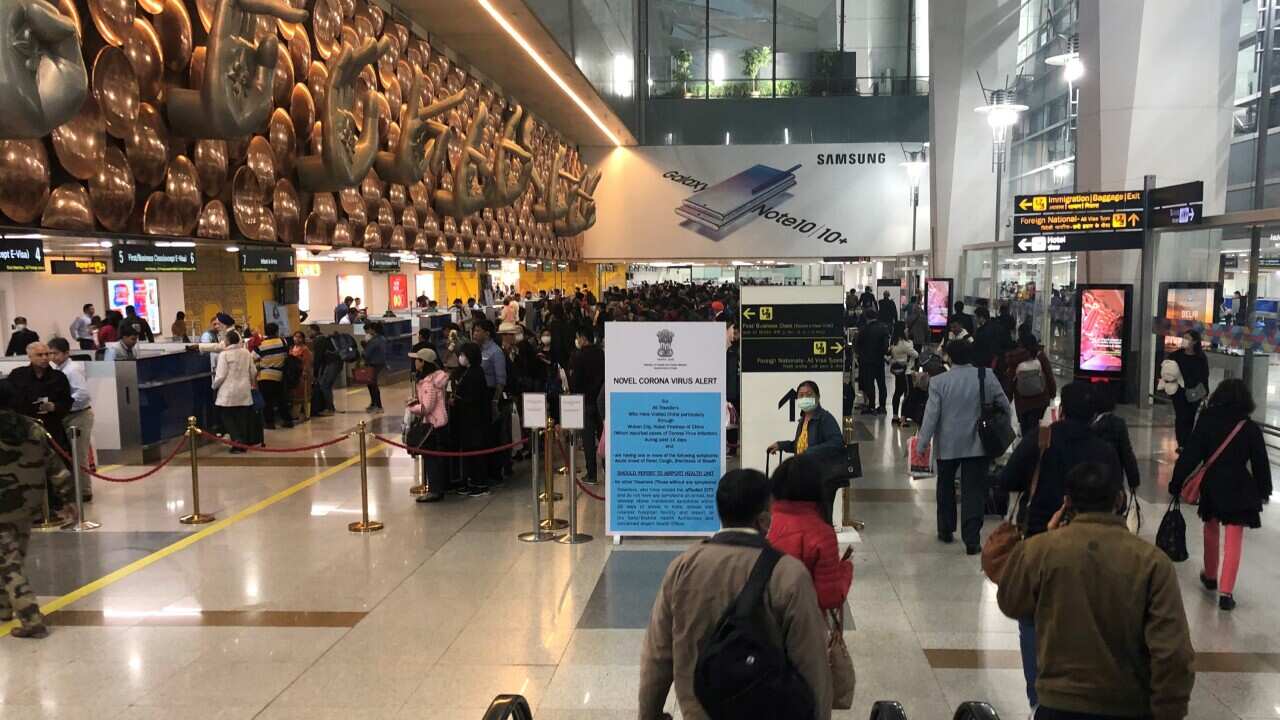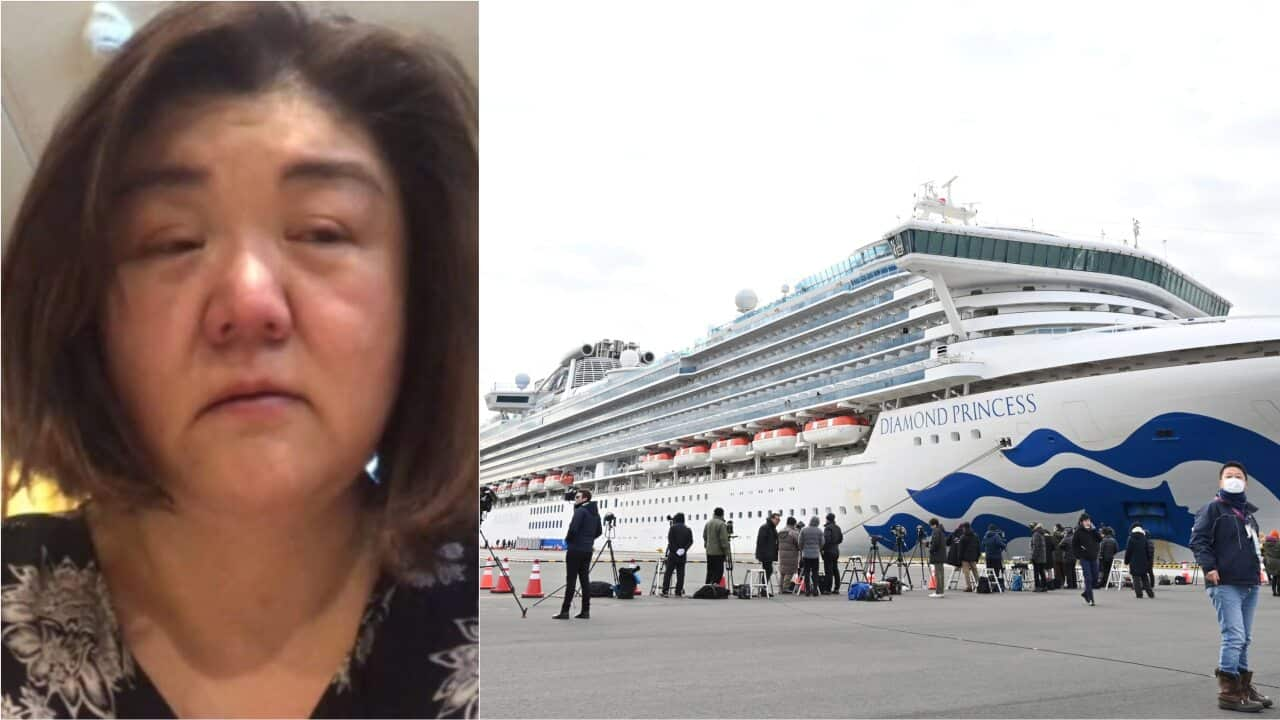Sakshi Dawar has been living in Melbourne with her husband and their three-year-old daughter since 2011. The IT consultant was counting the days until her 67-year-old mother could land in Australia to visit her for the first time since their arrival.
But now with more cases of coronavirus being reported around the world each day, Ms Dawar’s excitement has turned into worry and she is contemplating if she should ask her mother to defer or cancel her travel plans for the time being.
“I was counting the days, hours rather. She is booked to travel via Singapore and is scheduled to land in Melbourne next week. But now we are in two minds. Should we even let her board the flight because she has a four-hour layover at Changi airport?” said a concerned Ms Dawar.

A worker sprays disinfectant as a precaution against the novel coronavirus, inside a Vietnam Airlines airplane at Noi Bai International Airport in Hanoi. Source: AAP
Anchal Khanna, a travel agent based in Mumbai, said that many international travellers, particularly those who have layovers in Asian countries such as Singapore and Malaysia are considering cancelling their travel plans.
“Many are cancelling their plans and seeking refunds, while others who have made flexible bookings are postponing their trips as they had layovers in Malaysia, or in Singapore or Dubai.
"Families of Indians settled abroad are particularly concerned about their elderly parents who are booked to travel as most of them have underlying health issues and, in turn, weaker immunity,” said Ms Khanna.
However, she urges caution saying potential travellers must consult travel advisories issued by authorities in their home country and their intended destination before considering any changes to their travel plans.

People wearing masks at the airport. Source: AAP
The virus which emerged in Wuhan in China has crossed borders and currently, there are nearly 90,000 confirmed cases in 70 countries and regions. Worst affected countries outside mainland China are South Korea, Italy, Iran and Japan as per the latest reports.
As a result, travel restrictions are becoming more widespread, as countries around the world are issuing advisories for international travellers and airports and airlines are putting preventive measures to screen and quarantine those at risk.

Passengers arrive at Sydney airport wearing masks for protection against the deadly coronavirus. Source: Getty
The Department of Home Affairs has confirmed that there is currently no public health advice to strengthen entry restrictions for travellers from India if they have not been in mainland China in the last 14 days.
The Australian government has, however, raised its advice level for six countries- China and Iran: ‘Do not travel’. While the authorities have advised exercising a ‘high degree of caution’ for those travelling to South Korea, Japan, Italy and Mongolia. This also includes transitions/layovers at airports. Travelling to India:
Travelling to India:

A passenger wears a protective face mask on arrival at Chhatrapati Shivaji Maharaj International Airport, in Mumbai, India, 03 February 2020. Source: AAP
India’s Union Health Minister, Dr Harsh Vardhan has announced that existing visas including e-visas will remain suspended for China and Iran. In addition, the government has also asked its citizens to avoid all non-essential travel to Singapore, South Korea and Italy.
The directions further implied that people coming from these countries or having such travel history since February 10 may be quarantined for 14 days upon arrival to India.
Travellers from these countries and those coming in flights from Nepal, Indonesia, Malaysia and Vietnam are also being subjected to universal screenings at airports, as a precautionary measure to stop the spread of infection.
Travelling through airports in Asia:
The rules for entry, exit and transit through airports are subject to change, however, be prepared to be checked for coronavirus on your way through. This largely would depend on your travel history. You may be quarantined if you have travelled to mainland China or Iran in the recent past.
Singapore: If you have a layover at the Changi Airport, be prepared to go through a temperature screening.
Malaysia: If you have a connecting flight via Kuala Lumpur, you may be asked to fill a Health Alert Card to declare any medical issues upon your arrival at the international airport. You may also have to undergo thermal screening. Medical bays for quarantine purpose have also been set up to cater to any passengers exhibiting symptoms of the virus.
Thailand: All passengers arriving at entry points will have to go through thermal scans and fill out health beware cards.
Disclaimer: Please note that travel advisories are subject to change.



